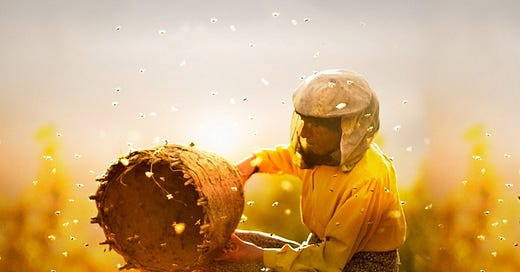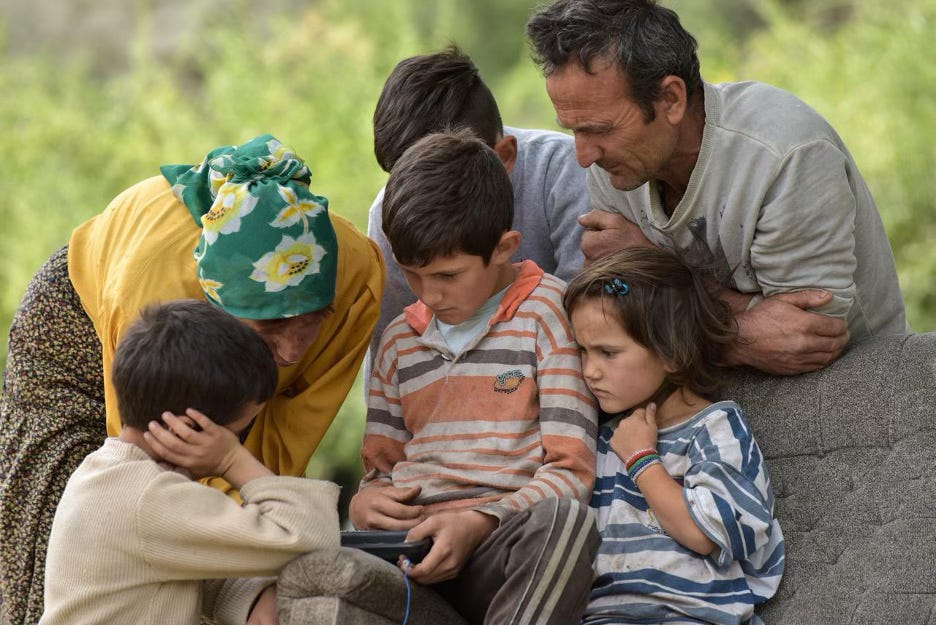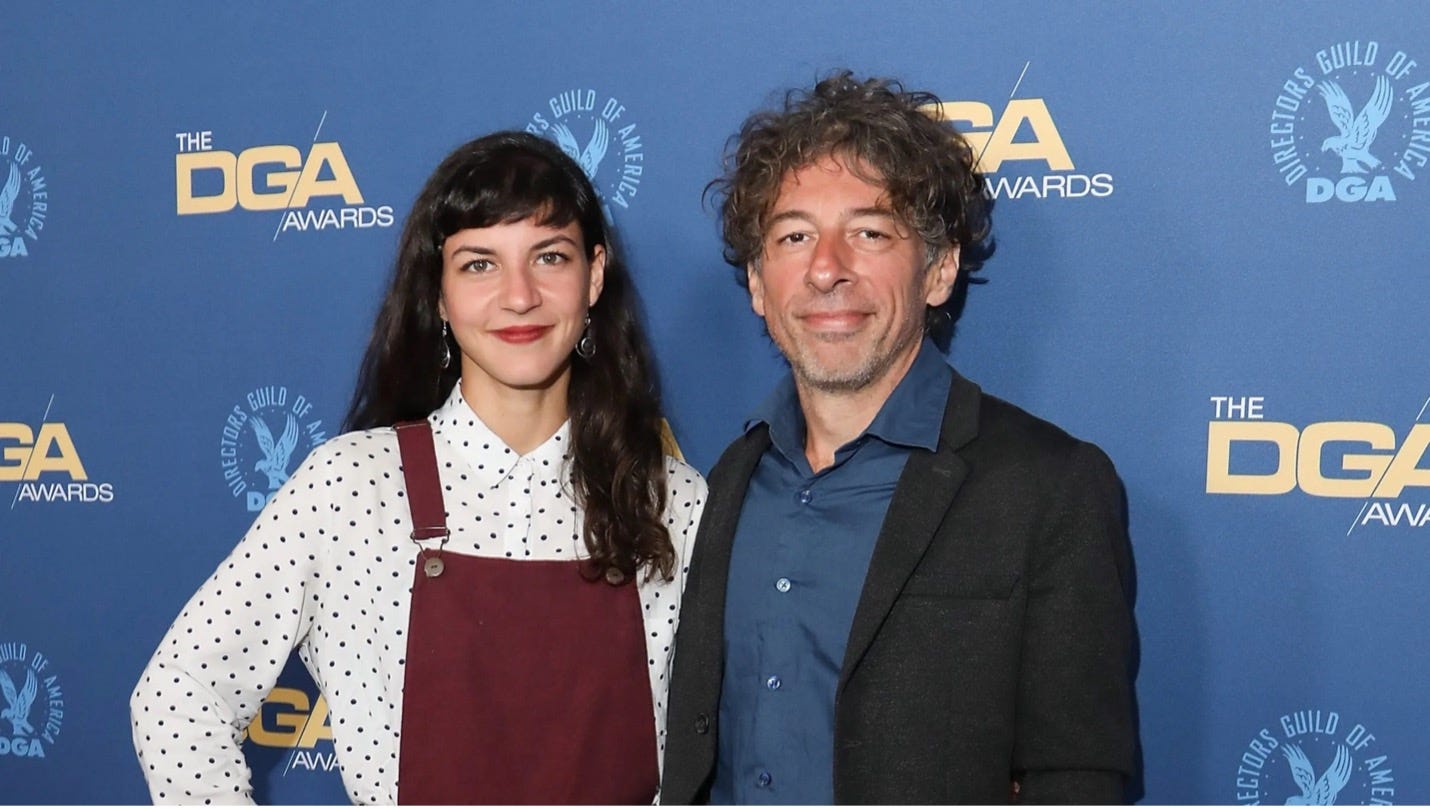Letter #3: A Beekeeper’s Wisdom
This month, I have a different kind of recommendation for you. It’s a story about our relationship with nature, the food we consume, the heritage of ancient traditions, and honey. Lots of honey...
A middle-aged woman determinedly wanders through a majestic, rugged landscape. She fights her way along a windswept mountain ridge, the wind tugging at her blouse. With calm precision, she reaches into a beehive hidden in a rock crevice with her bare hands. Undisturbed by the buzzing of the bees around her, she takes out a honeycomb...
I’ll be honest— I usually don’t gravitate towards documentaries, and you probably won’t see too many featured in this newsletter. But every now and then, one draws me in so completely that I’m left wondering why I don’t watch more. An example of such a documentary is Honeyland (2019), which opens with the striking scene described above. The sequence sets the tone for the beautiful yet challenging world that Macedonian directors Tamara Kotevska and Ljubomir Stefanov take us into.
🍿Film Recommendation
“Take half, leave half for the bees” — That is the guiding philosophy of Hatidze, Honeyland´s central figure. The documentary follows her solitary existence as one of the last traditional wild beekeepers in a remote Macedonian village, where she lives with her elderly mother. Hatidze collects just enough honey to sell at the market in Skopje, the closest city — always careful not to upset the delicate balance with nature she depends on. But her life is disrupted when a large nomadic family moves into the neighboring house. Suddenly, the quiet rhythm of her valley is broken by the noise of children, roaring engines, animals, and frequent arguments. At first, Hatidze welcomes the company. She plays with the children, shares stories by the fire, and even teaches Hussein, the family patriarch, her ancient method of honey harvesting. But when Hussein starts keeping bees without honoring the respectful balance Hatidze practices, their values clash…
Honeyland was the first film in history to be nominated for both Best Documentary Feature and Best International Feature Film at the Oscars—and very deservedly so. It is part environmental documentary, part intimate character portrait and offers a stunning exploration of female strength and persistence. Again and again, the filmmakers follow Hatidze carefully tending to her hidden beehives, reminding us that honey is the result of hard manual labor. What we witness on screen is a life that is deeply attuned to nature.
Shot in a cinéma vérité style, the film lets the events unfold without commentary. The images speak for themselves and the cinematography is simply stunning: wide, sweeping shots highlight the untamed beauty of the landscape Hatidze travels through, golden light cascading over mountain ridges, bees humming in and out of crevices. These images are contrasted with intimate scenes of Hatidze caring for her bedridden mother in their home, which seems to consist of nothing more than a simple room without electricity or running water.
Ultimately, Honeyland is a poetic, quietly powerful film that urges us to reflect on our relationship with food, the exploitation of natural resources, and the principles of sustainable living. But it does so without ever imposing moral judgment. It left me in awe of Hatidze and her unwavering dedication — and rekindled my appreciation for the power of documentaries.
History Bites:
🎥 Behind the Scenes - The documentary was shot over three years, during which time the filmmakers captured nearly 400 hours of raw material. They visited Hatidze’s village about 25 times, staying up to five days per trip.
🎥 Lake of Apples (2017) - That’s the name of the filmmaker duo’s first collaboration. It’s a short documentary that portrays the environmental decline of Lake Prespa in Macedonia through the eyes of an aging fisherman.
🎥 Cinéma verité - A style of documentary filmmaking that emphasizes naturalistic, observational techniques. It aims to capture real life as it unfolds, with minimal interference from the filmmakers.
👁️ Active Viewing: Pay attention to how the filmmakers frame Hatidze in the landscape shots compared to those in her home. What is emphasized visually about her way of life?
Streaming on: Amazon Prime, Apple TV+, MUBI









